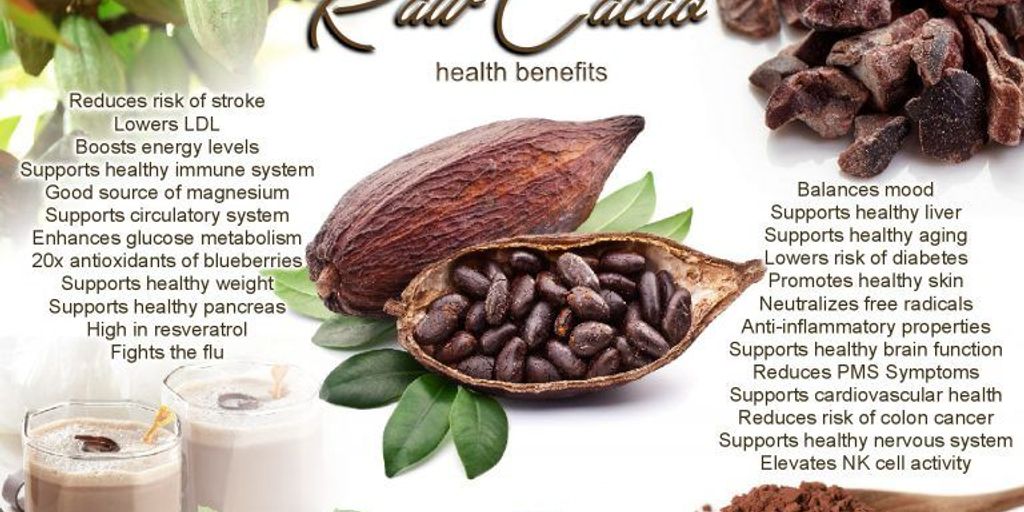In the pursuit of weight loss, women often seek the quickest routes to achieve their fitness goals. This article delves into various strategies that promise rapid weight reduction, tailored specifically for women. From understanding the biological mechanisms to exploring diet, exercise, and lifestyle changes, we provide a comprehensive guide to shedding pounds swiftly and safely. We also examine the role of medical interventions and supplements in the weight loss journey. Here are the key takeaways from the article ‘Shedding Pounds Swiftly: The Fastest Weight Loss Strategies for Women’.
Key Takeaways
- Understanding the science of weight loss and the impact of hormones is crucial for women to set realistic goals and achieve rapid fat reduction.
- Implementing dietary changes such as creating a caloric deficit, balancing macronutrients, and considering intermittent fasting can significantly accelerate weight loss.
- Incorporating exercise routines like HIIT, strength training, and strategic cardiovascular workouts maximizes fat burning and muscle building for women.
- Lifestyle adjustments, including adequate sleep, stress management, and proper hydration, play a vital role in sustaining weight management and boosting metabolism.
- Medical interventions and the use of natural supplements can aid in weight loss, but it’s important to understand their efficacy, safety, and associated risks.
Understanding Rapid Weight Loss for Women
The Science Behind Quick Fat Reduction
Rapid weight loss hinges on the fundamental principle of creating a caloric deficit. This means consuming fewer calories than the body expends, leading to the utilization of stored fat for energy. Exercise plays a crucial role in this process, not only by burning calories but also by improving blood circulation, which feeds our cells with oxygen and nutrients.
Metabolism is another key player in fat reduction. A higher metabolic rate can increase the number of calories burned at rest, making weight loss easier to achieve. Factors such as age, muscle mass, and hormonal balance can influence metabolic rate.
Maintaining a caloric deficit consistently is essential for rapid weight loss. It’s not just about dieting for a few days; it’s a sustained effort over time.
Understanding the body’s energy needs and how it processes food is crucial for effective weight loss. Here’s a simple breakdown of the components of a caloric deficit:
- Energy In: The calories you consume from food and beverages.
- Energy Out: The calories you burn through daily activities and exercise.
Achieving a balance where ‘Energy Out’ exceeds ‘Energy In’ is the goal for shedding pounds swiftly.
Hormonal Influences on Female Weight Loss
Women’s weight loss is significantly influenced by hormonal fluctuations, which can either aid or impede fat reduction efforts. Hormones such as estrogen, progesterone, and thyroid hormones play pivotal roles in regulating metabolism and body composition.
Stress hormones like cortisol can lead to weight gain, especially around the midsection, by promoting fat storage and increasing appetite. Managing these hormonal levels is crucial for successful weight loss.
- Estrogen: Affects fat distribution and appetite.
- Progesterone: Can cause water retention and bloating.
- Thyroid hormones: Regulate metabolic rate.
- Cortisol: Linked to abdominal fat and increased appetite.
It’s essential to approach weight loss with an understanding of one’s hormonal health, as imbalances can derail even the most disciplined diet and exercise routines.
Setting Realistic Expectations and Goals
Embarking on a weight loss journey requires a clear understanding of what’s achievable within a healthy timeframe. Setting realistic goals is crucial as it helps maintain motivation and prevents discouragement. A common mistake is aiming for rapid weight loss without considering the body’s natural resistance to such changes.
Consistency is key in any weight loss strategy. It’s not just about the number on the scale but also about developing habits that lead to long-term health benefits. Here’s a simple guide to help set attainable goals:
- Determine your baseline by tracking your current intake and activity level.
- Set small, incremental targets, such as losing 1-2 pounds per week.
- Celebrate non-scale victories, like improved energy levels or better fitting clothes.
Remember, weight loss is a journey, not a sprint. Patience and perseverance will lead to success.
While some may turn to options like Ayurvedic weight loss treatment, it’s essential to research and consult healthcare professionals to understand the best approach for your individual needs.
Dietary Modifications for Accelerated Slimming
Caloric Deficit: The Foundation of Weight Loss
Achieving a caloric deficit is essential for weight loss. This means consuming fewer calories than your body expends. Creating a caloric deficit compels the body to tap into stored fat for energy, leading to weight loss.
Caloric intake should be tailored to individual needs, and a deficit can be achieved through diet, exercise, or a combination of both. Here’s a simple guideline to understand the caloric deficit:
- Determine your Basal Metabolic Rate (BMR)
- Track the calories you consume
- Calculate the calories you burn through activity
Remember, a caloric deficit should be sustainable and not too aggressive to avoid negative health impacts.
It’s important to approach this strategy with caution and consider the body’s nutritional needs to maintain health and energy levels.
Macronutrient Balance: Proteins, Fats, and Carbohydrates
Achieving a balance of macronutrients is crucial for women looking to lose weight swiftly. Proteins, fats, and carbohydrates each play unique roles in the body’s metabolism and energy levels. A focus on macronutrient balance, rather than just calorie counting, can lead to more sustainable weight loss.
- Proteins are essential for muscle repair and growth, and they help you feel full longer.
- Fats are necessary for hormone production and provide a dense energy source.
- Carbohydrates fuel your daily activities and workouts, but should be consumed mindfully.
Adjusting macronutrient intake can be more effective than strict calorie restriction alone. It’s about finding the right balance that works for your body and lifestyle.
While there is no one-size-fits-all ratio, a common starting point for weight loss is a distribution of 40% carbohydrates, 30% protein, and 30% fats. This balance aims to provide enough energy for daily activities while promoting fat burning and muscle maintenance.
Intermittent Fasting: Pros and Cons for Women
Intermittent fasting (IF) has gained popularity as a weight loss strategy that involves cycling between periods of eating and fasting. Women may experience different effects from IF due to their unique hormonal profiles.
Pros of Intermittent Fasting for Women:
- Potential for increased fat loss and improved metabolic health.
- May enhance mental clarity and reduce inflammation.
- Can simplify meal planning and reduce the stress of constant meal prep.
Cons of Intermittent Fasting for Women:
- Risk of hormonal imbalance, particularly in those with pre-existing conditions.
- Possible increase in food cravings and overeating during eating windows.
- May lead to irregular menstrual cycles and affect fertility.
It’s essential for women to listen to their bodies and consult with a healthcare provider before starting any intermittent fasting regimen. Tailoring the approach to individual health needs and lifestyle is crucial for success and well-being.
While intermittent fasting can be a powerful tool, it’s not suitable for everyone. Women should weigh the benefits and risks carefully, considering their personal health goals and any potential hormonal implications.
Exercise Routines to Maximize Fat Burning
High-Intensity Interval Training (HIIT) for Women
High-Intensity Interval Training, or HIIT, has become a popular exercise strategy for women looking to shed pounds swiftly. The allure of HIIT lies in its efficiency, allowing for significant calorie burn in a short period of time. This method alternates between bursts of intense activity and fixed periods of less-intense activity or complete rest.
- Short bursts of exercise (e.g., 30 seconds of sprinting)
- Recovery periods (e.g., 1 minute of walking)
- Repeat for 15–30 minutes
By incorporating HIIT into their fitness regimen, women can experience a boost in metabolism that continues to burn calories even after the workout is complete.
While HIIT is effective, it’s important to start at an appropriate level of intensity and gradually increase to prevent injury. Women with pre-existing health conditions should consult with a healthcare provider before beginning any new exercise program.
Strength Training: Building Muscle to Burn Fat
Incorporating strength training into a weight loss regimen is crucial for women who want to not only lose fat but also gain muscle tone and improve overall body composition. Building muscle is essential because it increases resting metabolic rate, meaning more calories are burned even when not exercising.
Strength training should be approached with a strategy that includes variety, progression, and consistency. A typical routine might involve:
- Full-body workouts 2-3 times per week
- Progressive overload to continually challenge muscles
- Adequate rest between sessions to allow for muscle recovery
While cardio exercises are important for heart health and stamina, strength training provides the added benefit of enhancing muscle mass which can lead to more efficient fat burning over time.
Balancing cardio and high-intensity training, proper recovery, and fueling workouts are key for optimal results. Consult a fitness trainer for personalized guidance to ensure a balanced approach to your fitness journey.
Cardiovascular Workouts: Duration vs. Intensity
When it comes to cardiovascular workouts, the debate between duration and intensity is ongoing. For women looking to shed pounds swiftly, understanding the balance between how long you exercise and how hard you push yourself is crucial. A longer, moderate-intensity workout, such as walking or cycling, can burn a significant number of calories, especially if sustained over a longer period. On the other hand, shorter, high-intensity sessions can lead to quicker fat loss due to the afterburn effect, where the body continues to burn calories post-exercise.
Intensity often trumps duration when time is limited, but it’s essential to consider one’s fitness level and health status. Here’s a list of the best cardio exercises for weight loss, tailored to maximize fat burning:
- High-intensity interval training (HIIT)
- Stair climber
- Running
- Walking
- Cycling
- Sprinting
Remember, the key to effective weight loss is consistency and progression. Start at a comfortable pace and gradually increase the intensity or duration of your workouts to avoid burnout or injury.
Ultimately, the choice between longer workouts at a lower intensity or shorter, more vigorous sessions should align with your personal preferences, schedule, and fitness goals. Mixing both methods may provide the best results, offering the benefits of endurance building and efficient calorie burning.
Lifestyle Adjustments for Sustained Weight Management
Sleep’s Role in Weight Regulation
The importance of sleep during weight loss cannot be underestimated. Adequate sleep is crucial for regulating metabolism and appetite. When we are sleep-deprived, our bodies produce more ghrelin, the hunger hormone, which can lead to increased appetite and cravings for high-calorie foods.
Consistent, quality sleep supports weight loss by allowing the body to function optimally. During sleep, the body repairs muscles and balances hormones, both of which are essential for a healthy weight loss journey.
Creating a sleep-conducive environment and establishing a regular bedtime routine are key strategies for improving sleep quality. Here’s a simple list to enhance your sleep environment:
- Ensure your bedroom is dark and quiet
- Maintain a comfortable temperature
- Invest in a comfortable mattress and pillows
- Avoid screens and stimulating activities before bedtime
Stress Management Techniques to Prevent Overeating
Managing stress is crucial in preventing the cycle of emotional eating that often sabotages weight loss efforts. Identifying triggers is the first step to breaking free from stress-induced cravings. By recognizing the situations and emotions that lead to overeating, women can develop healthier coping mechanisms.
Stress management techniques such as deep breathing exercises, meditation, and yoga can significantly reduce the urge to eat in response to stress. Here’s a simple list to get started:
- Practice mindfulness and be present in the moment.
- Engage in regular physical activity to relieve stress.
- Establish a support network of friends and family.
- Ensure adequate sleep to help regulate mood and appetite.
It’s not just about resisting the temptation to eat; it’s about finding alternative ways to handle stress and emotions that don’t involve food.
Creating a stress management plan is essential for long-term success in weight loss. This plan should include a variety of strategies to deal with stress in a healthy way, thus preventing the default response of reaching for comfort foods.
The Importance of Hydration and Metabolism
Maintaining adequate hydration is crucial for metabolic health and weight management. Water is essential for numerous bodily functions, including digestion and the transportation of nutrients. A well-hydrated body can more efficiently metabolize fat, leading to better weight loss outcomes.
Metabolism plays a pivotal role in how quickly and effectively the body can shed pounds. A higher metabolic rate means more calories are burned at rest, contributing to weight loss even when not actively exercising. To boost metabolism, consider incorporating the following habits into your daily routine:
- Consuming metabolism-boosting foods like green tea and spicy peppers
- Engaging in regular physical activity
- Ensuring consistent, quality sleep
Staying hydrated and having a healthy metabolism are interlinked aspects of weight management. Without sufficient water intake, metabolic processes slow down, hindering weight loss efforts.
It’s important to note that while hydration and metabolism are key factors in weight management, they should be part of a comprehensive approach that includes diet, exercise, and lifestyle adjustments. Products like those from MedDrop can complement this approach by providing additional support for those looking to gain weight.
Medical Interventions and Supplements
Prescription Medications for Weight Loss
When considering prescription medications for weight loss, it’s essential to understand their role in the broader context of weight management. These medications, such as GLP-1 agonists, orlistat, and setmelanotide, are typically prescribed for individuals who struggle with obesity or have weight-related health issues.
- GLP-1 agonists work by mimicking a hormone that helps regulate appetite.
- Orlistat blocks the absorption of a portion of the fat from your diet.
- Setmelanotide is designed for those with rare genetic disorders affecting appetite.
While these medications can be effective, they are most beneficial when combined with other lifestyle changes, such as diet and exercise. It’s important to have realistic expectations and to use these tools as part of a comprehensive weight management plan.
Consulting with a healthcare provider is crucial to determine the appropriateness of these medications for your situation and to understand the potential side effects and benefits.
Natural Supplements: Efficacy and Safety
When exploring the realm of natural supplements for weight loss, it’s crucial to assess both their efficacy and safety. Many supplements claim to boost metabolism or reduce appetite, but not all are backed by scientific evidence. It’s important for women to scrutinize these products, especially considering the plethora of articles on sexual enhancement products, fitness supplements, and herbal remedies.
- Green Tea Extract: Believed to aid in fat burning
- Conjugated Linoleic Acid (CLA): Marketed for fat loss, but studies show mixed results
- Garcinia Cambogia: Popular for appetite suppression, yet research on its effectiveness is inconclusive
While some supplements may offer a marginal boost in weight loss efforts, they should never replace the fundamentals of a healthy diet and exercise. Moreover, the potential side effects and safety concerns of certain products must be carefully considered before use.
Ultimately, the decision to use supplements should involve a careful consideration of their potential benefits against the risks and costs. Consulting with a healthcare provider is always recommended to ensure that any supplement regimen is appropriate and safe.
Understanding the Risks of Weight Loss Surgery
Weight loss surgery, also known as bariatric surgery, can be a life-changing procedure for those struggling with obesity. However, it’s crucial to recognize the potential risks and complications associated with these surgical interventions. Complications can range from minor to severe, and may impact a patient’s quality of life post-surgery.
Infection, bleeding, and adverse reactions to anesthesia are common concerns immediately following surgery. Long-term risks include nutrient deficiencies due to altered digestion and the necessity for lifelong dietary adjustments. It’s essential for candidates to have thorough discussions with their healthcare providers about these risks.
- Nutrient deficiencies
- Potential need for reoperation
- Long-term dietary changes
- Psychological effects
Patients must weigh the benefits of significant weight loss against the possibility of surgical complications and the commitment to permanent lifestyle changes.
Explore a world of natural remedies and holistic health with our extensive range of Ayurvedic medicines and personal care products. From managing acne to boosting your immunity, Swasthyashopee offers authentic, 100% natural herbal solutions for all your health and wellness needs. Balance your doshas and embrace the ancient wisdom of Ayurveda for a healthier, happier life. Visit our website now to discover the perfect products for you and enjoy doorstep delivery of the highest quality Ayurvedic care.
Conclusion
In conclusion, the journey to swift weight loss for women involves a combination of strategic dietary changes, regular physical activity, and a commitment to a healthy lifestyle. While the strategies discussed can accelerate weight loss, it’s crucial to approach them with a mindset focused on long-term health and well-being. Remember to consult with healthcare professionals before embarking on any drastic weight loss plans to ensure they align with your individual health needs. Ultimately, the fastest weight loss strategies are those that you can maintain consistently, leading to lasting results and an empowered sense of self.
Frequently Asked Questions
Can rapid weight loss be harmful to women’s health?
Rapid weight loss can sometimes lead to negative health consequences such as nutrient deficiencies, muscle loss, and hormonal imbalances. It’s important to approach weight loss in a sustainable, healthy manner.
How does a caloric deficit contribute to weight loss?
A caloric deficit occurs when you consume fewer calories than your body expends. This deficit forces the body to use stored fat for energy, leading to weight loss.
Is intermittent fasting safe and effective for women?
Intermittent fasting can be safe and effective for many women, but it’s important to personalize the approach. Some women may experience hormonal disruptions, so it’s best to consult with a healthcare provider.
What type of exercise is best for fat burning in women?
A combination of high-intensity interval training (HIIT), strength training, and cardiovascular workouts can be effective for burning fat. The key is to find a routine that is sustainable and enjoyable.
How does sleep affect women’s weight management?
Adequate sleep is crucial for weight management as it helps regulate hormones that control appetite and metabolism. Poor sleep can lead to increased hunger and decreased metabolic rate.
Are natural supplements a reliable way to enhance weight loss?
Some natural supplements may offer modest weight loss benefits, but they should not replace a healthy diet and exercise. It’s important to research their efficacy and safety, and consult with a healthcare provider.











